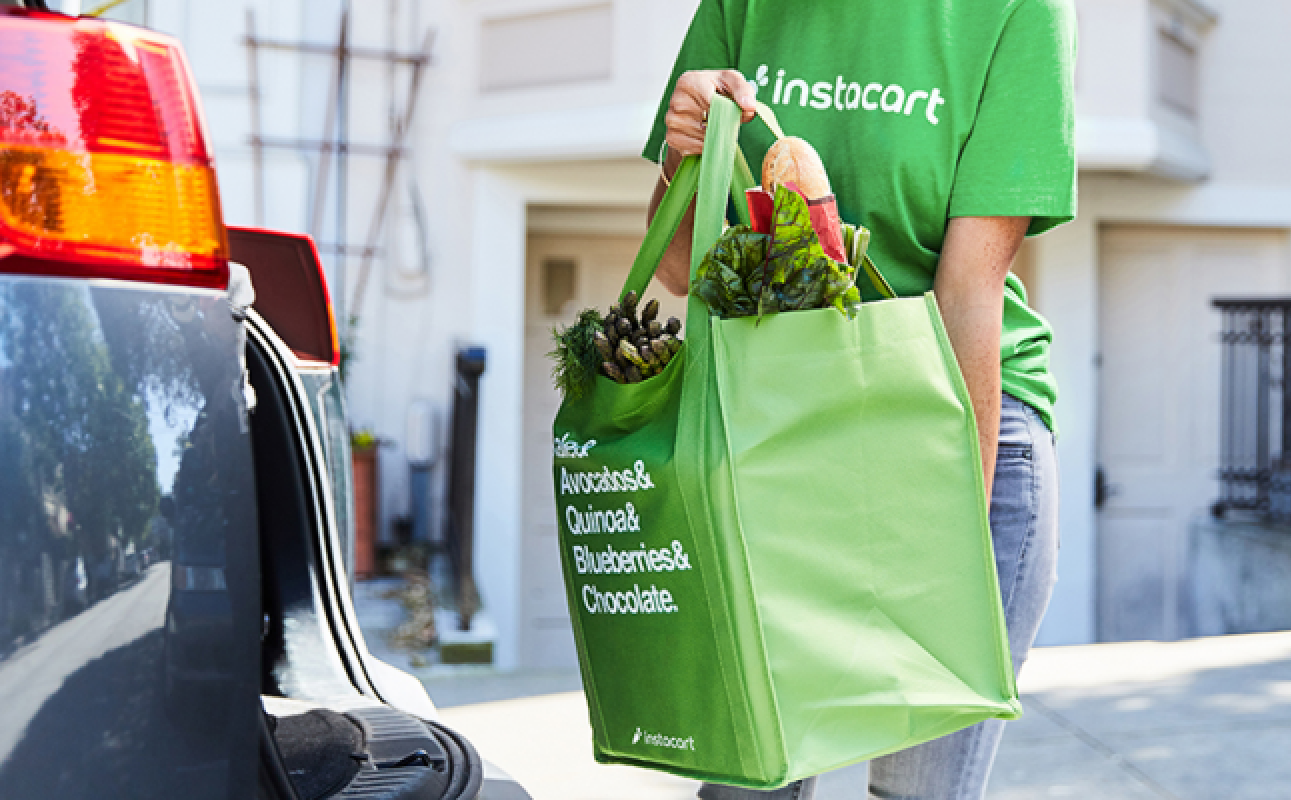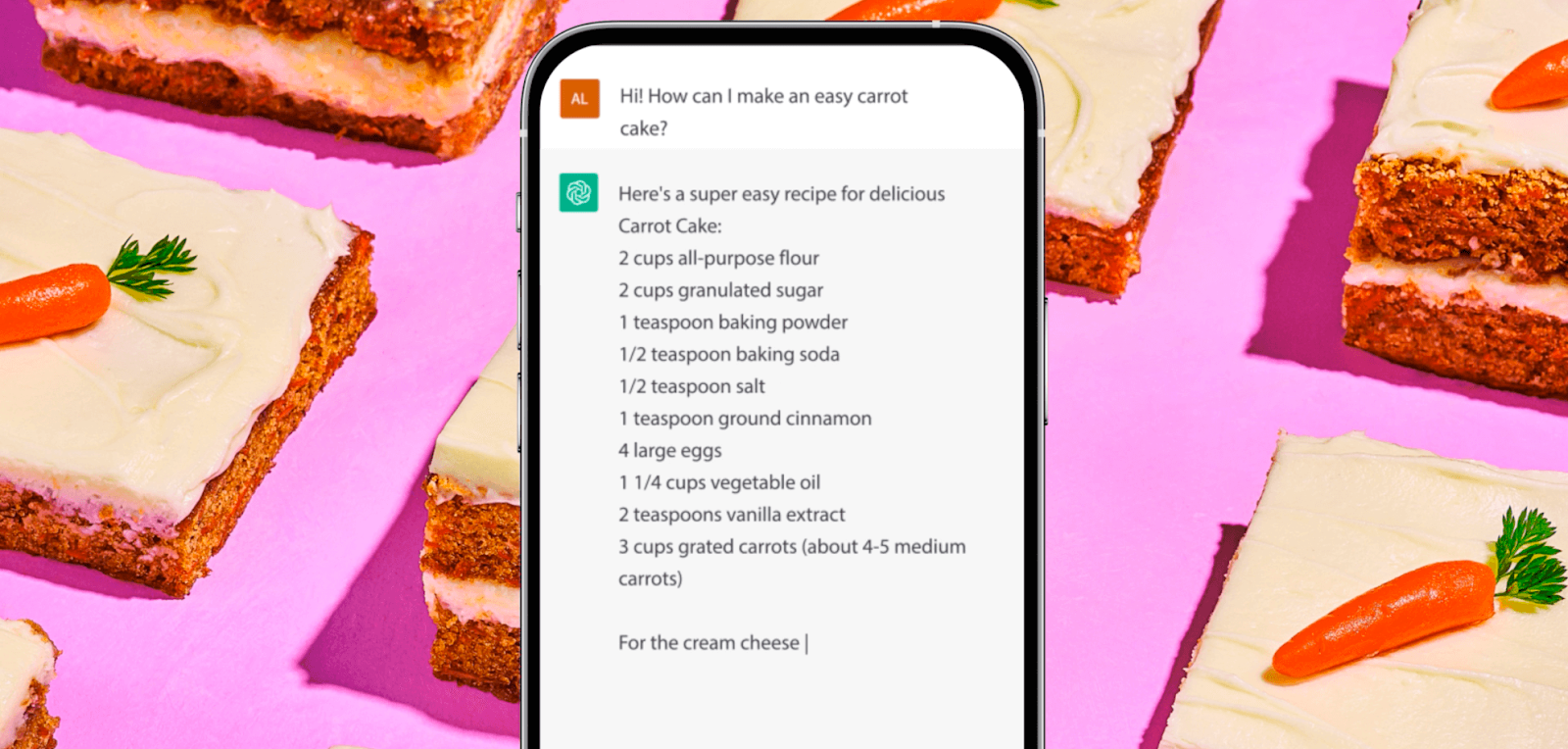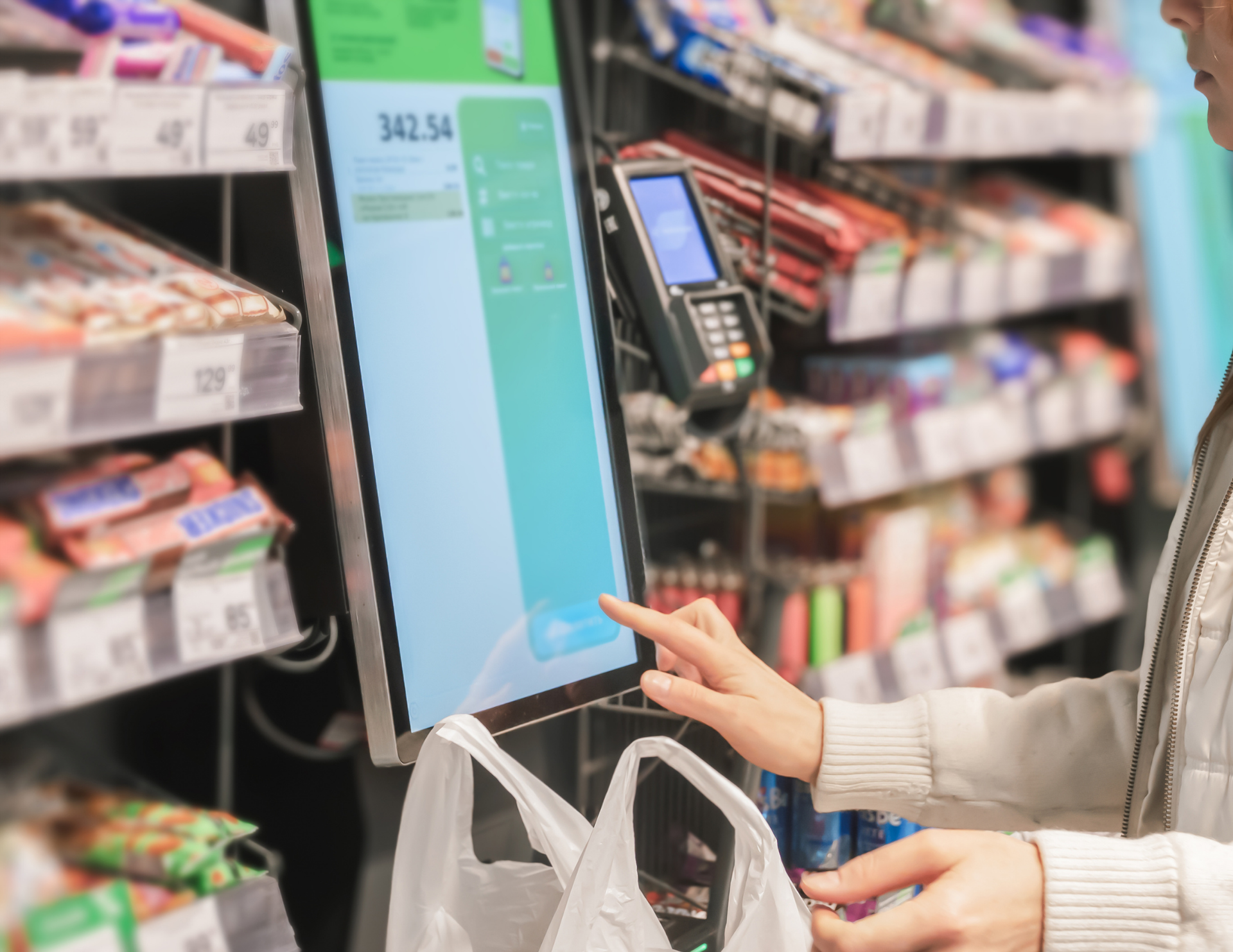Instacart Implements ChatGPT Plugin for Recipe Inspiration
Looking to create the perfect dessert for a summer cookout with friends and family? Step one: consult AI.
The Announcement
Earlier this year,
Instacart announced that it would be collaborating with OpenAI to develop a
ChatGPT plugin for its users. This development aims to generate recipes for users through AI while allowing the user to submit their requests using natural language.
Natural Language Processing allows AI to understand commands that are given in written words rather than code. The Instacart plugin first became available for ChatGPT Plus subscribers and will continue to expand to all ChatGPT users in the coming weeks. Instacart is joining brands like Expedia, KAYAK, and OpenTable who have designed their own plugins for ChatGPT.

What is a Plugin?
Simply put, ChatGPT plugins are
products that extend the functionality of ChatGPT itself. OpenAI has produced a few plugins of their own to be used with ChatGPT, the rest come from third-party developers. These plugins are made to function with the GPT-4 version of ChatGPT since this is currently the only version that can connect to the internet. These plugins are not to be confused with ChatGPT extensions, which extend the functionality of third-party products using ChatGPT (much like extensions on Chrome).
How the Instacart Plugin Works

Using natural language, the user will ask ChatGPT a question regarding recipes or ingredients. The user can create parameters for the AI to follow such as certain diets and allergy restrictions. Instacart’s plugin can even accommodate the most indecisive of users by answering the age-old question:
what should I have for dinner?
ChatGPT will then compose a recipe that can be transformed into a list of ingredients to be ordered through Instacart.
Safety and Changing Regulations
OpenAI put out a statement saying, “Cohere, OpenAI, and AI21 Labs have developed a preliminary set of best practices applicable to any organization developing or deploying large language models.” Instacart followed this up by reinforcing their commitment to modifying the plugin as technology improves and AI regulations change.
Visit the
SparkShoppe blog to stay up-to-date on the newest technology and AI developments!
















